Proponents of DUI or sobriety checkpoints argue that they are an effective means of preserving public safety by reducing alcohol-related deaths and injuries. As such, DUI checkpoints have become a common occurrence in California, particularly on holiday weekends, and this past Memorial day weekend was no exception. An experienced San Diego DUI defense lawyer can protect your rights if you have been charged with as DUI.
On Friday, May 27, a motorist was arrested for drunk driving and attempting to evade law enforcement after he drove over a median to avoid a DUI checkpoint area in Poway and led officers in a brief pursuit. This most recent incident highlights the importance of understanding your rights when it comes to DUI checkpoints.
Are DUI Checkpoints Legal?
In most situations, California law requires law enforcement to have probable cause to pull someone over. However, DUI checkpoints are considered an administrative procedure and are therefore an exception to the general probable cause requirement for traffic stops. The California Supreme Court ruled that DUI checkpoints are constitutional in Ingersoll v. Palmer so long as the checkpoints meet the following guidelines:
- Supervising officers must make all operational decisions.
- The criteria for stopping motorists must be neutral and unbiased.
- The checkpoint must be “reasonably located.”
- Adequate precautions must be taken to ensure the safety of motorists.
- The scheduling and duration of the checkpoint should reflect “good judgment.”
- The checkpoint must sufficiently indicate its official nature.
- Drivers should be detained a minimal amount of time; and
- Roadblocks should be publicly advertised in advance.
Can I Avoid a DUI Checkpoint?
There is no law that prevents a driver from intentionally avoiding a DUI checkpoint so long as it is safe to do so. Additionally, it is illegal for police to stop you solely because you attempted to avoid a DUI checkpoint. While it is legal to avoid a DUI checkpoint, you must still obey traffic laws and drive safely when attempting to do so. If you commit a traffic violation, exhibit signs of impairment, or otherwise give police probable cause that you have committed a crime, you may be pulled over while attempting to avoid a checkpoint.
What to Expect at a DUI Checkpoint?
At a sobriety or DUI checkpoint, a police officer will typically ask for your driver’s license and registration. You are legally required to comply with the officer’s instructions. If you do not have a valid driver’s license or are driving on a suspended license, you may be charged accordingly. After running your driver’s license, the officer may briefly question you to assess for any signs of impairment. If the officer has reason to believe you are impaired, you may be asked to perform field sobriety tests, a preliminary alcohol screening (PAS), and/or blood/breath tests, which could ultimately result in you being placed under arrest for driving under the influence.
How a San Diego DUI Defense Lawyer Can Help
At McElfresh Law, we pride ourselves on providing skilled and knowledgeable legal representation to individuals charged with DUI offenses. We have the experience it takes to fight your DUI charge and help you obtain the best possible outcome for your case. Our legal team is ready to be by your side, from the beginning to the end.
Call our San Diego Defense DUI lawyers today at (858) 756-7107 and let us discuss how we can represent you.









